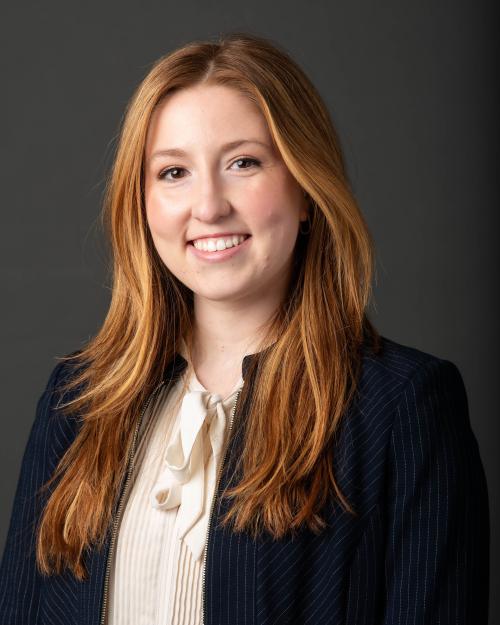Q & A with Marisa Adelman, M2 at Chicago College of Osteopathic Medicine
Marisa graduated from UMD in 2018 with a B.S. in Bioengineering. She took five gap years and applied to MD/DO schools twice. During her gap years, she worked as an Emergency Department scribe with ScribeAmerica at UM Baltimore Washington Medical Center, a medical assistant at a dermatology office, and a research fellow at the U.S. Army Medical Research Institute of Chemical Defense. Marisa is currently in her second year at The Chicago College of Osteopathic Medicine.
Why Medicine?

I chose to pursue medicine due to an accumulation of things. I have a lot of family members with mental health issues, which made me interested in psychiatry. I hope to develop connections on a deep emotional level with patients, as I have witnessed how mental health impacts quality of life and wellness. I am very passionate about navigating people's mental health challenges.
What extracurricular activities do you think best prepared you for DO school?
The extracurricular activities that best prepared me were the patient interactions I had as an MA. Working at a private office gave me more opportunities than I had at a hospital, as I was able to remove sutures, do wound dressings, assist with surgeries, work with PAs, and gain interprofessional development. My research experience also prepared me as I helped with small animal surgeries and did histology work. I also shadowed a DO cardiologist, which was a great way to see the role and impact of a DO. The way he cared for his patients definitely embodied the DO philosophy.
What are the challenges you face in DO school?
There are plenty of challenges. Having five gap years and going back to school was a big transition. The first quarter of school was definitely an adjustment. Everyone is figuring out new study strategies and the school-life balance is very different from undergrad as there is so much more information. It is easy to sometimes feel like everyone else has it together and I am the only one that is struggling, but that is definitely not true. As you talk to people, you realize that everyone is trying to figure out what they are doing! After the first quarter, I felt pretty well-adjusted. Some personal challenges I had were moving to a new state away from family and friends and having to be long-distance with my boyfriend.
What hobbies do you have outside of medicine and how do you balance that?
I enjoy cooking (I like to meal prep on Sundays), baking, working out, and painting. Once a month, my friends and I do a wine and crafts night. I also like to do group fitness classes 2-4x a week. In DO school, you have to shift your expectations of how much you can do because school is a big time commitment, but it is super important to maintain hobbies and do things that bring you peace and take your mind off of school.
What drew you to your particular DO school?
A big thing was the location. My program is in a suburb of Chicago and so rotations are in the city. I wanted to find a program that was more urban as there is a more diverse patient population (which is different from the rural patient population I saw at the dermatology office in Bel Air, Maryland). I can also see myself practicing in an urban area so I wanted to experience that in DO school. I also have a personal connection to the area as my family is originally from Chicago.
How and when did you prepare for the MCAT?
I took the MCAT three times. The first time, I spent too much time on content review and not enough time doing practice questions. The second time I took it, I didn't take enough time between the first and the second exams to really make a difference in my score. The third time, I did the Altius prep course, which was nice because it gave me structure in my studying. And the biggest thing is to do lots of practice exams and practice questions. My score went up 6 points, which was great.
What advice would you give your younger self?
Don’t be so hard on yourself. I did bioengineering at UMD and my GPA was not as high as the average GPA for medical schools. I should've given myself a little more grace; I had a bad mindset and was discouraging myself. I was initially scared to go to HPAO because I didn't want to be told that I wouldn’t get in. I would tell myself to have more confidence and be your cheerleader instead of your worst critic. Ultimately, as a physician, you have to be confident and sure of yourself, you need to be kind to yourself, and it's an ongoing process. It is important to engage in positive self-talk.
Is there anything you would like to share with us that we did not ask?
I initially wasn’t as knowledgeable about osteopathic medical schools, but they are continuing to grow [in number]. Many DO schools have been established in the past decade. There [can still be a stigma], but DO is very respected. It is basically the same as MD programs, but with additional education on the osteopathic manipulative medicine (OMM) model. I have really enjoyed learning the OMM. It's become an extra tool I can use and helps me become more comfortable doing physical exams on patients.


